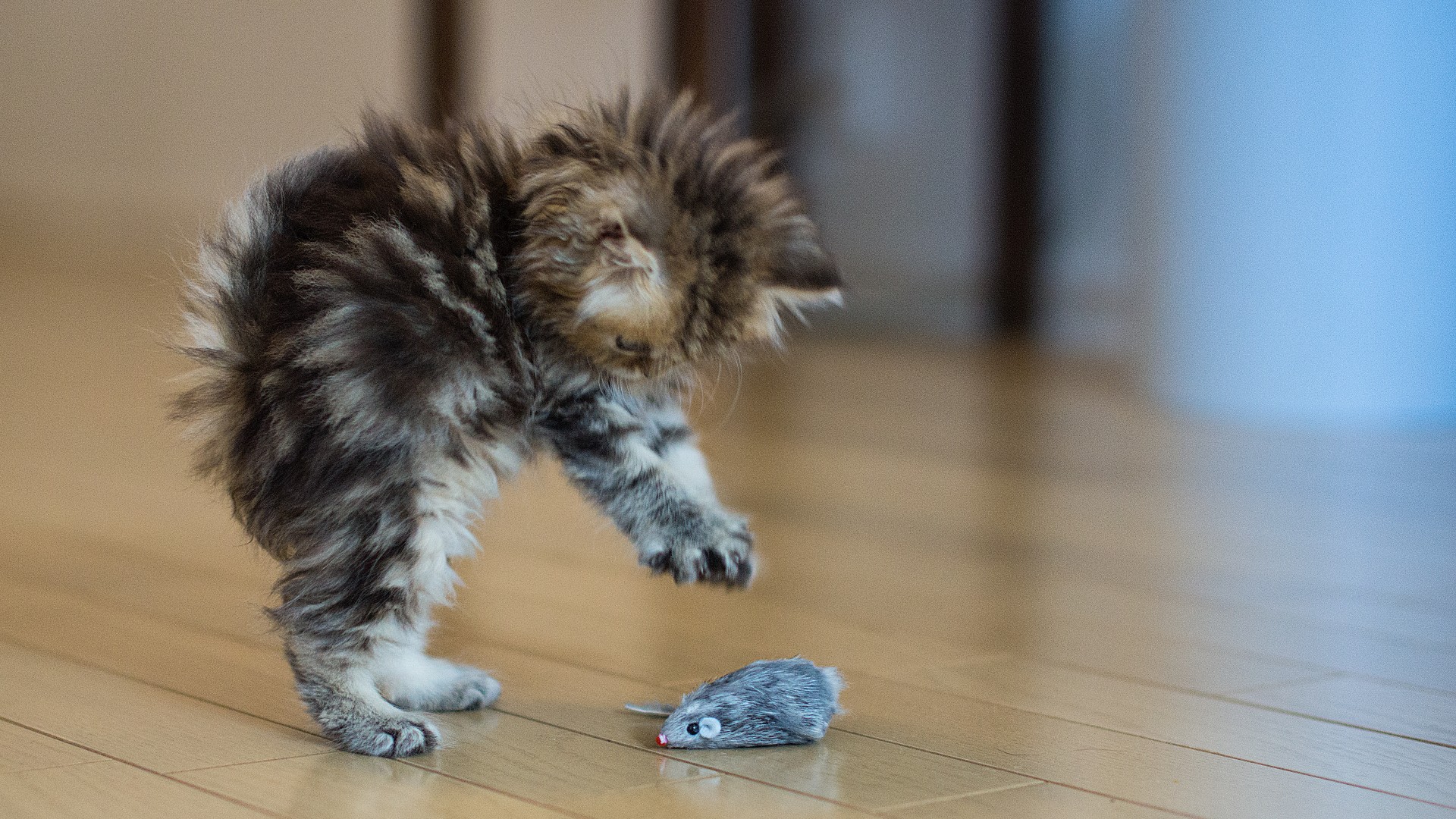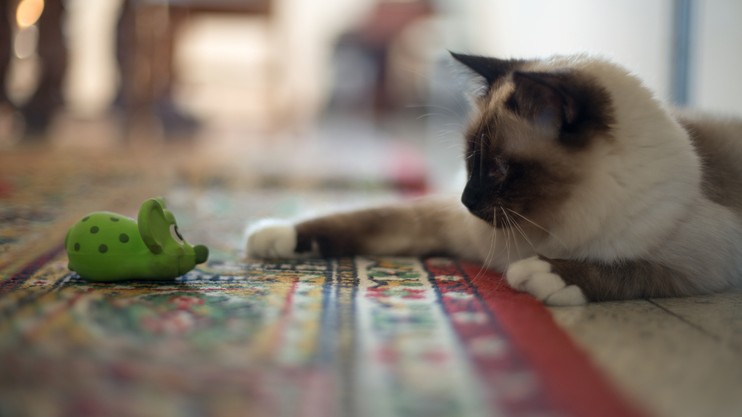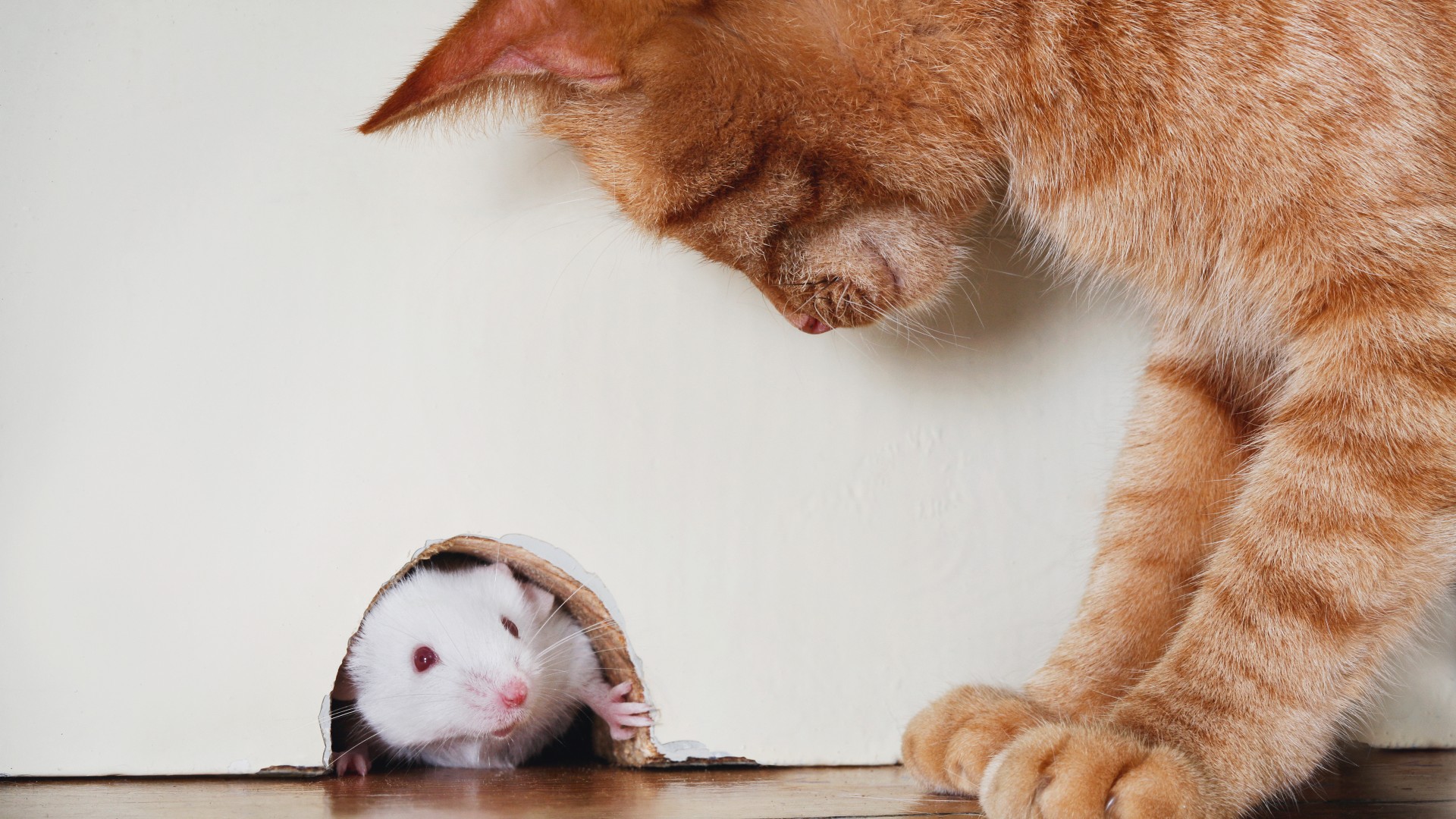Do cats eat mice? And is it it bad for them?
Cat owners all wonder, do cats eat mice? And what happens if they do?

Get the best advice, tips and top tech for your beloved Pets
You are now subscribed
Your newsletter sign-up was successful
It's certainly a commonly used cliché, but do cats eat mice? Do they actually eat them, or just engage in a cat and mouse kind of chase? Are all the cartoons we grew up with wrong? Will some of the best cat toys keep your cat distracted and away from any critters you may have in your house or yard?
If you're wondering if cats eat mice and if that choice of food is bad for your cat, don't worry, we've got you covered. Cats have a strong hunting instinct, and despite being domesticated are still inherently predators. And mice, though adorable, are technically prey. If you've ever seen your cat play with an automatic toy or even a small plushie that resembles a mouse, you can understand why real mice interest your cat – they're low to the ground, fast, and move in ways that catches your cat's attention.
So, cats definitely chase mice – but do cats eat mice? Is this even a healthy part of their diet? How can you prevent your cat from eating a mouse? We'll cover all that and more, so read on.
Do cats eat mice or just kill them?
This isn't all that great to hear, we know, but sadly some cats do eat mice. Cats are hard-wired to chase after things that run away from them, and they often enjoy the thrill of the hunt. Domesticated cats may not be as keen to eat their catch as much as a big cat may in the wild, but occasionally domestic cats do chow down on their prey – and sadly sometimes that prey is a mouse.
But often, domesticated cats don't eat what they've killed – they may even bring their owners whatever they've managed to catch as a means of presenting to you what they've managed to catch. Everhart Vet suggests this is a way for cats to treat you as part of their family, and to attempt to teach you how to hunt for mice yourself. Naturally, this can be a traumatizing event for some owners, but remember your cat is doing this out of instinct, not malice.
Is it safe for cats to eat mice?

The short answer is no. Rodents are often infected with roundworms, and eating a mouse could mean that the infection passes to your cat. There is also the chance that if your cat eats more than one mouse that has been infected by rodent poison or bait, they could indeed have an adverse reaction like internal bleeding or other serious issues.
Mice and rats also often carry a parasite called Toxoplasma gondii, which causes toxoplasmosis in humans. Toxoplasmosis may not cause symptoms in humans if they have a healthy immune system, as it manages to fight off any potential illness caused by the parasite. But for pregnant women and other people with compromised immune systems, toxoplasmosis can be very dangerous.
Get the best advice, tips and top tech for your beloved Pets
What happens if my cat eats a mouse?

If you suspect or are certain your cat has eaten a mouse, keep a close eye on your feline for 24-48 hours. Watch for signs of gastrointestinal distress like diarrhea, vomiting, or bloating. If you notice these signs, call your vet or a 24/7 veterinary line.
How to stop cats killing mice
There are a few things you can do to stop your cat from killing mice. Here's a few key tips.
1. Add a bell to your cat's collar. If you have an outdoor cat or just an indoor cat that loves hunting, adding a bell to their collar will help warn prey that they're being hunted. Your cat can't stealthily stalk mice if the mice can hear it!
2. Don't attract prey. Keep garbage around your living area off the ground to avoid attracting mice. If you're worried about other prey like birds, remove birdbaths and bird feeders from the equation.
3. More play time. Your cat may be hunting because it has a lot of pent up energy, so increasing play time may help with that. Your cat may still go outside and hunt, but if they're catching prey as a way to entertain themselves, you can help keep them entertained and hopefully keep the mice safe.
4. Don't let your cat outside/limit time outside. Having an outdoor cat is already a tough choice for owners, but if you want to ensure your cat isn't attacking anything outside your four walls, you may want to stop letting them go outside. If that isn't an option, you can more clearly dictate and restrict their time outside to avoid them running into mice. Mice are most active between dusk and dawn, so keep kitty inside during these hours.
It may seem like an age-old cliché, but cats and mice don't really get along, and cats do eat mice from time to time. There are ways to keep both cat and mouse safe however, and we've outlined them here. Don't panic if your cat brings home a dead mouse – just dispose of it and keep an eye on your cat. The cat and mouse game will continue on forever, but you can help keep your cat safe.
You might be wondering if you should intervene when your cat catches a mouse - this is what a vet has to say.
